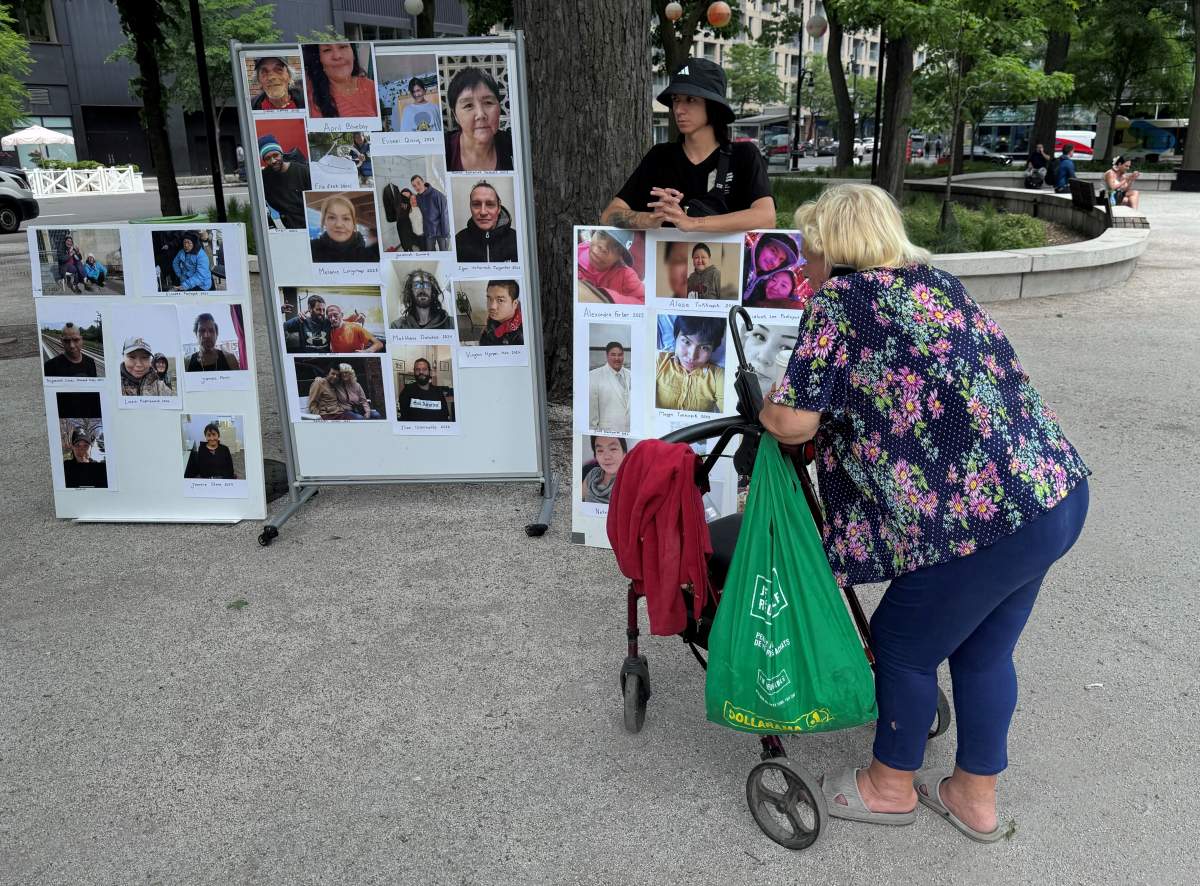The number of homeless people who’ve died in Montreal over the last three years is shocking, say advocates.

“Thirty-five here today, and it’s growing, actually,” said David Chapman, at a memorial in Cabot Square. “We’re putting up another picture as we speak, so it’s 36.”
That’s just people served by Resilience Montreal, a community organization that serves the unhoused. Chapman stressed the 36 are just the ones they’ve heard about. He believes there are many more. Executive Director for Resilience, he estimates at least 12 died last year, and others in 2024 including at least one who lived underneath the Ville-Marie Expressway.
“Matthew. Matthew Donohoe, right there,” he said, pointing to the man’s photograph posted on a white display board along with photos of others who also died.
Chapman said Donohoe was among the campers who were evicted last summer, without an organized alternative location.

Get breaking National news
“We warned people that if you just kicked people out without a realistic destination, they go into hiding and are more likely to die of an overdose,” he recalled. “That’s exactly what happened.”
According to him, Donohoe was found in a public bathroom stall after the overdose.
- Why Canadian beer cans are ‘almost impossible’ as tariffs near 1-year mark
- Latest alleged Iranian regime official found in Canada wants his identity hidden
- Jivani’s trip to Washington has some Conservative MPs scratching their heads
- Semi driver who caused Humboldt Broncos bus crash loses refugee bid
“You could say ‘I told you so,’ but what is that going to fix?” he asked rhetorically.
The other noteworthy fact, other workers argue, more than half the 36 are Indigenous women.
“There’s one woman here, Elisapee Pootogook,” noted Nakuset, executive director for the Native Women’s Shelter of Montreal. “She had no safe place to go and she froze to death.”
Resilience Montreal officials said they held the memorial to highlight the gravity of the homelessness problem in the city, but that it was also a way for other members of the homeless community to find mutual support.
“It gives us time to grieve,” stressed client Vanessa Laprise. “Because when we’re homeless and we don’t have a funeral to go to and nobody….” She broke down crying and couldn’t finish her sentence, but said later that she and others are grateful for the event.
That so many people are dying on the streets is a sign that governments have failed, advocates argue, saying there aren’t enough services for the unhoused.
“We need to have more day shelters for people that are in crisis exactly how they are,” Nakuset pointed out. “So, if they come in under the influence, we need services for that so they’re not turned away.”
Chapman also believe services should be spread out into all communities, which he admits is difficult.
“Because what you’re up against, is neighbourhood after neighbourhood that just doesn’t want accessible resources in their neighbourhood for the homeless,” he noted.
Resulting, he said, in an over-concentration of resources in some areas and leading to cohabitation problems.
As advocates and clients mourn those who died, they fear things will only get worse.









Comments